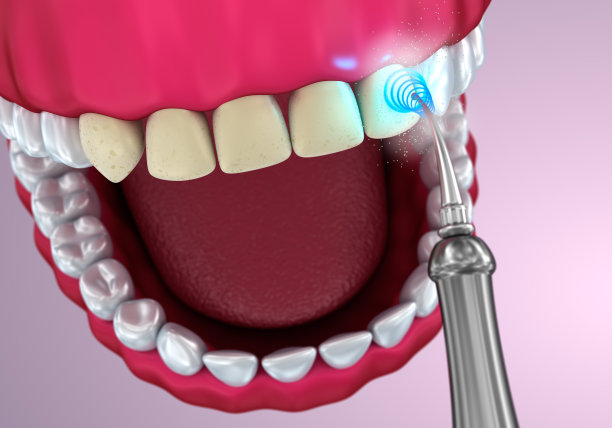Summary: This comprehensive guide explores the myriad benefits of dental implants, different types available, and essential care tips for ensuring a healthier smile. Dental implants have revolutionized modern dentistry by offering a permanent solution for missing teeth. They not only restore functionality but also enhance the aesthetic appeal of one’s smile. We delve into various types of implants, highlighting their unique advantages, and outline the necessary care practices to maintain them, ensuring longevity and optimal health. This article serves as an all-encompassing resource for anyone considering dental implants, aiming to provide clear insights to help make informed decisions about oral health.
1. Advantages of Dental Implants

Dental implants have numerous benefits that make them a preferred choice for tooth replacement. One primary advantage is their durability and strength. Unlike dentures, which can wear out over time, implants are made from titanium, a material known for its resilience. Once integrated into the jawbone, they can last for decades with proper care, providing a long-term solution for tooth loss.
Another significant benefit is the improvement in oral health. Implants stimulate the jawbone, preventing bone loss that typically occurs after tooth loss. This not only helps maintain facial structure but also contributes to overall oral health. Patients often report better oral hygiene since implants do not require the special cleaning methods needed for removable dentures.
Aesthetically, dental implants look and feel like natural teeth. This boosts the self-esteem of individuals who might feel self-conscious about missing teeth. The ability to eat and speak confidently is another advantage, as implants function just like real teeth, allowing for a diverse diet and clear communication.
2. Different Types of Dental Implants
When it comes to dental implants, there are mainly two types: endosteal and subperiosteal implants. Endosteal implants are the most common and are surgically placed directly into the jawbone. Once the surrounding gum tissue has healed, another surgery is necessary to attach a post to the original implant, followed by the replacement tooth or crown.
On the other hand, subperiosteal implants are placed under the gum but above the jawbone, making them an option for patients who do not have sufficient height in their jawbone and prefer not to undergo bone augmentation. These implants can be more complex as they require careful planning and are less common.
Additionally, there are innovations such as mini dental implants, which are smaller and often suitable for patients with narrower jawbones. This variety in implant types allows dental professionals to customize treatments based on individual patient needs, optimizing outcomes and comfort.
3. Essential Care for Dental Implants
Caring for dental implants is crucial to their longevity. Just like natural teeth, they require regular brushing and flossing to prevent plaque buildup. Patients are advised to use non-abrasive toothpaste to avoid damaging the implant surface, and regular dental check-ups are essential to monitor the health of the gums and the implants themselves.
In addition to daily oral hygiene, its important to avoid harmful habits such as smoking, which can impede healing and lead to implant failure. Staying hydrated and incorporating a balanced diet rich in calcium and vitamins can support oral health, promoting strong bone and gum tissue around the implants.
Lastly, patients should be vigilant for any signs of complications, such as unusual swelling or pain, and should contact their dentist immediately if these occur. Prompt attention can prevent minor issues from escalating, ensuring the longevity and success of dental implants.
4. Long-Term Impact on Quality of Life
The impact of dental implants extends beyond mere aesthetics; they significantly enhance quality of life. Individuals with implants can enjoy their favorite foods without worry or discomfort, allowing for a more fulfilling dining experience. This improvement in functionality encourages better nutrition, which positively affects overall health.
Furthermore, the confidence that comes with a complete smile can have profound social implications. Many patients report improved interactions and relationships, as they feel more self-assured when smiling or speaking. This newfound confidence can lead to more opportunities in personal and professional settings.
Overall, dental implants offer immense value in terms of health, aesthetics, and psychological well-being, making them a worthy investment for anyone facing tooth loss.
Summary:
Dental implants provide a long-lasting and aesthetically pleasing solution for missing teeth, significantly enhancing the health and quality of life for individuals. By understanding the benefits and types of dental implants, as well as essential care practices, patients can make informed decisions leading to healthier smiles.
This article is compiled by Vickong Dental and the content is for reference only.
Vickong Dental
Vickong Dental is a large medical group established in Hong Kong in 2008 by professors from well-known medical universities in Guangdong and Hong Kong, as well as medical doctors from key national '985' universities (including Master's supervisors and senior professors). The chain of branches brings together expert dentists with PhDs and Master's degrees from Hong Kong and Mainland China, committed to providing high-quality dental treatment.
"Vickong Dental Practices the University Motto of 'Healing and Serving Society,' with a Stable Operation for Sixteen Years. It Has Been honored with Hong Kong Enterprise Leaders's Choice,' and is a Global Trusted Implant Center for the Nobel Implant System. Recommended by Hong Kong Metro Broadcast and Guangdong Television, it Serves Customers from Over Thirty Countries and Regions, Gaining the Trust and Favor of Citizens from the Guangdong-Hong Kong-Macau Greater Bay Area and Surrounding Cities.

Thousands of customers' unanimous praise
The most recognized and highly recommended dental service by customers in the Guangdong-Hong Kong-Macau Greater Bay Area
We Ensure You Receive Detailed Care and Attention Here
Hong Kong standards, Shenzhen prices, Your Trusted English-speaking dentists

Vickong Dental Medical-Grade Instrument Disinfection Process
Vickong Dental Medical-Grade Instrument Disinfection Process

Vickong Dental Chain: A Warm and Comfortable Environment for Treatment






Appointment Hours

Q&A
Why choose Vickong Dental?
Vickong Dental practices the university motto 「Medicine to Benefit Society」, with each branch bringing together highly qualified dentists with doctoral and master’s degrees from Hong Kong and the Mainland, and has maintained seventeen years of steady operation。Recipient of 「2024 Hong Kong Enterprise Leaders Brand」, 「2025 Hong Kong Enterprise Leaders Brand」, a Nobel Biocare Global Trusted Implant Center, and a brand recommended by Metro Radio Hong Kong and Guangdong TV。
To date, we have served customers from more than thirty countries and regions,earning exceptionally high word-of-mouth recognition and trusted recommendations from residents across the Guangdong-Hong Kong-Macao Greater Bay Area and surrounding cities
We have eight major branches in Zhuhai、Shenzhen,and a consultation and service assurance center in Hong Kong,so you can book a free consultation at any time for any questions,which is very reassuring.
If I do not accept the quotation after the CT scan, will I be charged??
No! As long as the actual treatment has not started, you will not be charged any fees.
Will there be any additional charges during the treatment process?
No, there won’t be any additional charges. Before treatment begins, we will clearly explain the treatment plan and its corresponding fees. Only after the patient agrees and signs the consent form will we proceed with the dental service.
Can I pay in Hong Kong dollars?
Yes. Vickong Dental accepts payment in Hong Kong dollars. The amount will be converted based on the exchange rate of the day, and the applicable rate will be clearly communicated to you in advance.
Can I reschedule my appointment at any time?
Yes. Please contact us via **WeChat** or **WhatsApp** as early as possible, providing your original appointment time and details, along with your preferred new date and time slot for rescheduling.













